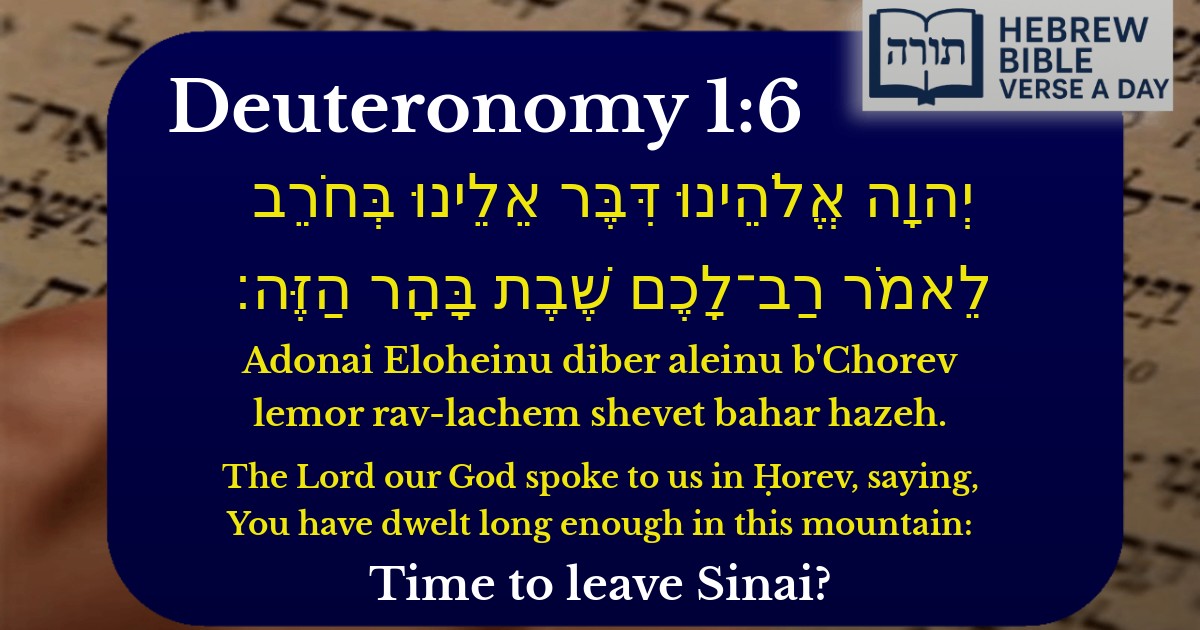Join Our Newsletter To Be Informed When New Videos Are Posted
Join the thousands of fellow Studends who rely on our videos to learn how to read the bible in Hebrew for free!
Hebrew Text
יְהוָה אֱלֹהֵינוּ דִּבֶּר אֵלֵינוּ בְּחֹרֵב לֵאמֹר רַב־לָכֶם שֶׁבֶת בָּהָר הַזֶּה׃
English Translation
The Lord our God spoke to us in Ḥorev, saying, You have dwelt long enough in this mountain:
Transliteration
Adonai Eloheinu diber aleinu b'Chorev lemor rav-lachem shevet bahar hazeh.
Hebrew Leining Text
יְהֹוָ֧ה אֱלֹהֵ֛ינוּ דִּבֶּ֥ר אֵלֵ֖ינוּ בְּחֹרֵ֣ב לֵאמֹ֑ר רַב־לָכֶ֥ם שֶׁ֖בֶת בָּהָ֥ר הַזֶּֽה׃
יְהֹוָ֧ה אֱלֹהֵ֛ינוּ דִּבֶּ֥ר אֵלֵ֖ינוּ בְּחֹרֵ֣ב לֵאמֹ֑ר רַב־לָכֶ֥ם שֶׁ֖בֶת בָּהָ֥ר הַזֶּֽה׃
🎵 Listen to leining
Parasha Commentary
📚 Talmud Citations
This verse is not quoted in the Talmud.


Context in Deuteronomy
The verse (Devarim 1:6) marks the transition from recounting the revelation at Har Sinai to the command to journey toward Eretz Yisrael. Rashi explains that this was a gentle rebuke—Hashem was telling Bnei Yisrael they had lingered too long at Har Sinai after receiving the Torah, and it was time to move forward to fulfill their mission.
The Significance of "רַב־לָכֶם"
The phrase "רַב־לָכֶם" ("You have dwelt long enough") is interpreted by the Sifrei as implying both a reproach and a blessing. The reproach was for delaying the conquest of Eretz Yisrael, while the blessing was that they had already absorbed the Torah’s foundations sufficiently to proceed. Ramban adds that this was the 40th year, and the generation was now spiritually prepared to enter the Land.
Ḥorev vs. Sinai
The verse uses "חֹרֵב" (Ḥorev) instead of "Sinai," which the Midrash (Shemot Rabbah 2:4) connects to the word חורב (destruction)—a reminder that idolatry (which brings destruction) was uprooted there. Alternatively, the Kli Yakar suggests Ḥorev alludes to the dryness (חרב) of mundane existence, contrasting with the spiritual saturation of Sinai.
Practical Lessons